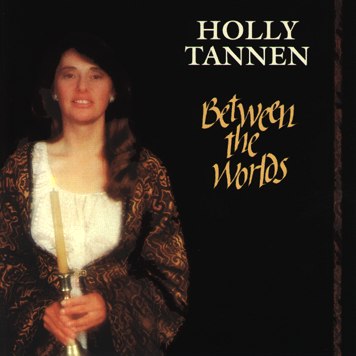|
In European folklore, our human world remains close to the domain of the spirits of nature and the souls of the dead. The syncretization of Christian and pre-Christian beliefs has led to some inconsistencies, but when you listen to traditional ballads and tales, recurrent themes begin to emerge.
The wild ride of the fairy troop is found in Scottish and Irish lore. Margaret's rescue of Tam Lin takes place at Samhain, the end of harvest and heginning of winter, season of the dead. On this night the veil between our world and the world of the unseen is at its thinnest, and those with the Sight can pass between the worlds.
The belief that overlong mourning for the dead disturbs their rest is common throughout Europe. It is found in some of our most beautiful ballads, including this Kentucky version of The Unquiet Grave.
I've learned many songs from Susan Rothbaum. Gone Gonna Rise Again, by Appalachian labor organizer Si Kahn, expresses a closeness with the land and with our kin that many of us have never known. Our ancestors lie buried in Europe, Asia, Africa. I like to believe that we can reawaken them by keeping alive the songs they sang. Through All the World Below is a hymn that Susan transgendered, with a bit of polishing by Catherine Madsen and myself.
Catherine also kindly allowed me to rework several lines of her pagan anthem, The Heretic Heart, based on the boasting songs of the Senegalese griots or praise poets. Sabina Magliocco and I deconstruct it in our article 'The Real Old Time Religion: Towards an Aesthetic of NeoPagan Song," in Ethnologies, Volume 20 #1-2,1999. Margot Adler has entitled her '60s autobiography Heretic's Heart after this song.
I first heard Bird in the Bush sung by A.L. Lloyd at a lecture on "The Erotic Element in English Folksong" at U.C. Berkeley in 1963. I learned it around 1974 from the singing of Frankie Armstrong.
Bury Me Not On the Lone Prairie comes from the singing of Carlo Calabi, Dark Island from the playing of Andrew Cronshaw.
Wassail, from the Anglo-Saxon wes hael, (be of good health), has came to mean both house-to-house midwinter carolling and the potent drink offered to the visitors. According to Alan Lomax and Peter Kennedy, "the midwinter luck-visit with its wassail songs occurs pretty well all over Europe from Portugal to the Balkans, from Iceland to North Russia, in similar form, and with similar verses, to the English wassail." Malpas Wassail hails from Cornwall, via the singing of the Watersons.
The Nine Points of Roguery come from English fiddler Pete Cooper. He says they are like the Seven Deadly Sins, except that you get to choose your two favorites and do them again. I think I learned The Merry Sisters from the playing of Kevin Burke.
I don't remember from whom I learned The Rainmaker. Ric Masten's song always puts me in mind of the story of "The Rainmaker", one of the parallel lives at the end of Hermann Hesse's Magister Ludi.
|
![]()
